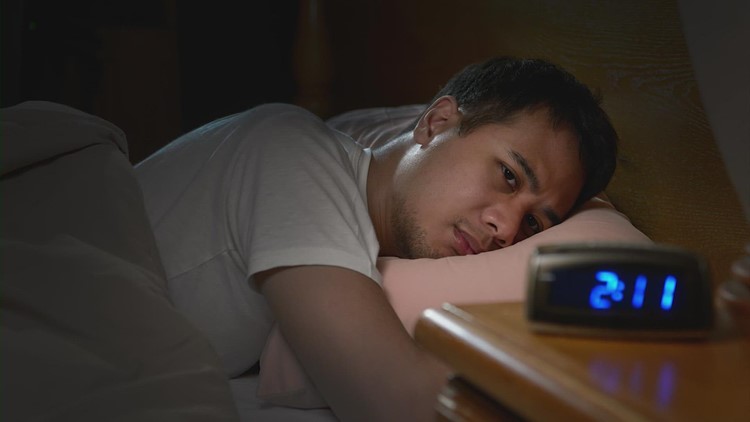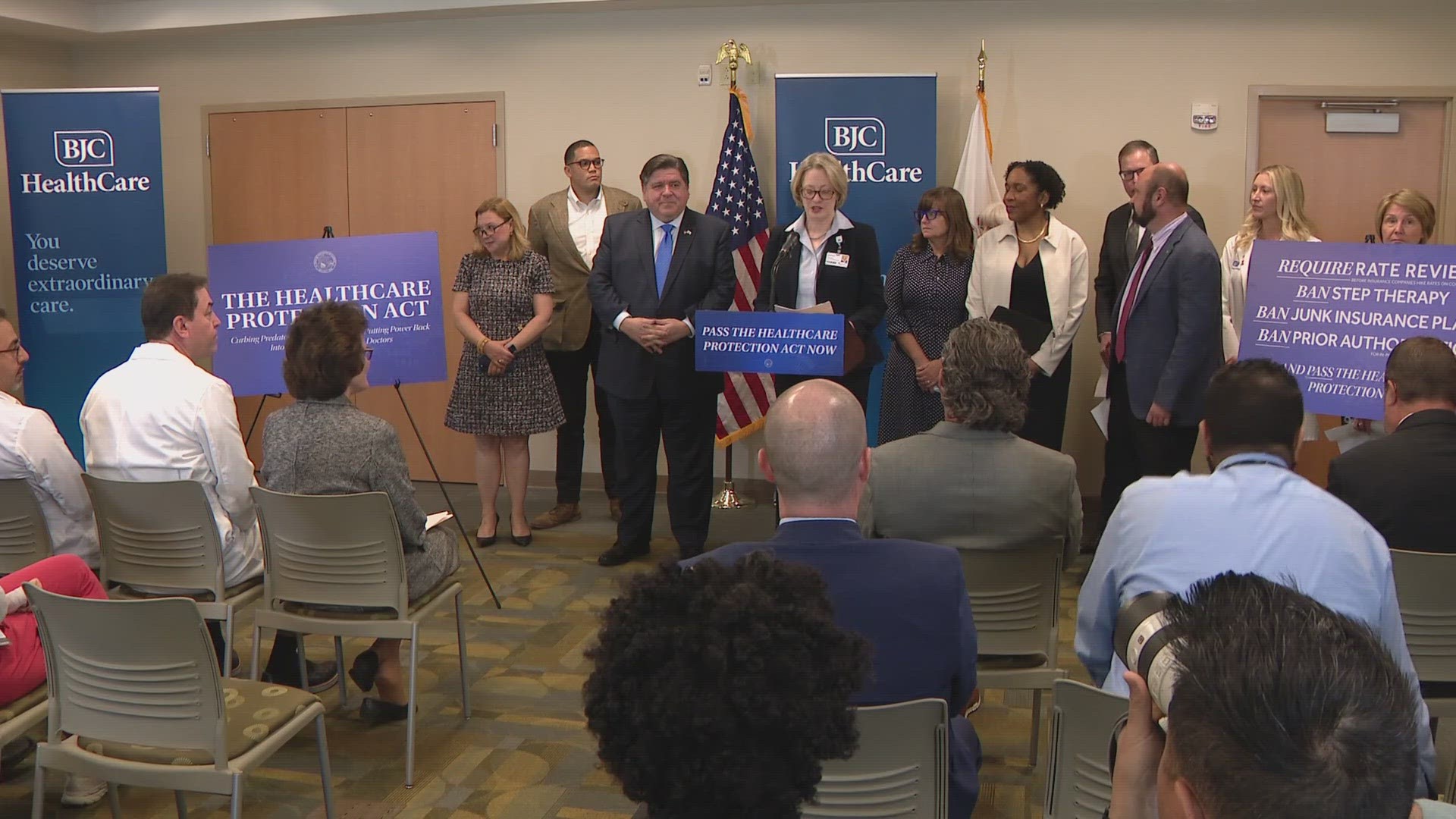ST. LOUIS — Poor sleep habits and the absence of a sleep routine are often the most common contributors to insomnia, according to Mark Muehlbach, director of the Insomnia Center at the Clayton Sleep Institute.
“Bad sleep habits include drinking caffeine or smoking near bedtime (both are stimulating and may interfere with sleep), watching TV in bed, spending too much time in bed awake and keeping irregular sleep/wake schedule,” he explained.
Using technology, such as tablets and smart phones, can also interfere with sleep due to emission of blue light, but also just using technology or problem solving for work in bed can cause issues.
Taking substances to sleep sets people up for a cascade of other problems.
“People will often self-medicate with over-the-counter medicines, alcohol or prescription medications from their primary care doctor,” Dr. Muehlbach said.
Antihistamines and prescription sleeping pills should only be used short-term. Tolerance to the sedative effects of antihistamines can develop quickly — the longer they’re taken, the less likely they are to induce sleep. You can also feel pretty out of it the next morning.
Research has shown that people who regularly took certain antidepressants and antihistamines, like Benadryl, increased their risk of dementia.
“Take note that alcohol is also not a good sleep aid,” Dr. Muehlbach emphasized.
Substances, especially alcohol, make insomnia worse and can aggravate mood disorders.
Jennifer McDaniel, a registered dietitian and owner of McDaniel Nutrition, said alcohol might help you fall asleep quicker, but it’s not a good long-term plan for several reasons.
“Alcohol reduces your quality of sleep, especially disrupting deep REM sleep, and the more a person drinks before bed, the stronger the disruption.”
She advised against drinking alcohol within two to three hours before bedtime. The timing varies based on your rate of alcohol metabolism, which depends on your liver function, body weight, ethnicity and gender.
She has similar cautions about consuming caffeine, which can keep you from falling asleep.
“Slow metabolizers of caffeine or those who are sensitive, should avoid caffeinated drinks like coffee or soda after lunch,” she added.
How can you tell if you’re a slow metabolizer of caffeine? Slow metabolizers take up to 10 hours to completely clear caffeine from their bloodstream and typically stay wired up during that time. Fast metabolizers may feel more energetic and alert for only a couple of hours because they can clear the caffeine more quickly.
The fix: sleep routines
Dr. Muehlbach is a strong advocate for sleep routines and has been able to help people by getting real about the bad sleep habits they’ve developed over the years and getting them into a routine.
He starts by asking patients to keep sleep logs to track sleep and daily activities for several weeks, which gives him a good indication of the consistency of their sleep schedule and a few other factors that may be affecting their sleep (think caffeine use, exercise, napping).
Sleep is disrupted when you create associations between your bed/bedtime and everything except sleep. So, when you get in bed to sleep, your body thinks it’s time to do a bunch of other stuff.
To get to sleep, Dr. Muehlbach said you have to break the association which requires getting out of bed.
“If you wake up in the middle of the night and feel wide awake for 15 minutes, get out of bed, do something very relaxing — not house chores or exercise — and then get back into bed after 15 minutes,” he explained.
Repeat this as necessary to avoid too much time awake in bed.
“Sleep is the only thing that the more you practice it, spending time in bed not sleeping, the worse it becomes,” he said.
Getting good, restorative sleep may require investigation. Hopefully you have some ideas to investigate further. A sleep clinic can test you for sleep apnea, other sleep disorders and help you develop better sleep habits.
Tips for good sleep
- Develop a sleep routine that includes taking a hot bath before bed.
- Set a consistent bedtime and awake time, including on weekends.
- Reserve your bed for sleep and sex.
- Minimize screen time before bed.
- Put clocks in your bedroom facing away and out of arm’s reach so you’re not checking the time, which aggravates sleep problems.
- Don’t drink alcohol and large volumes of liquid near bedtime.
- Don’t consume caffeine, including chocolate, after 4:00 P.M.
- Don’t use your bed for problem solving or doing work.
- Keep your bedroom cool – 65 degrees Fahrenheit.
- If your partner snores, sleep in a separate bedroom or wear wax ear plugs that mold to the shape of the ear.
Resources:
Sleep dilemma series:
Jackie Barnes, Ph.D., LCSW, is a freelance health writer, medical family therapist, consultant and professor. When she’s not practicing and promoting holistic health, she’s working on one of her many creative projects.



